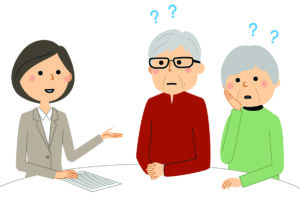 Every year, Hawai‘i residents are swindled out of money through many forms of crime. The Federal Trade Commission estimates that 2.4 billion robocalls made every month. Over 3,500,000 older adults are swindled out of nearly $5 billion in personal savings each year. The average loss is $34,200-plus for every senior who falls victim to a scam. More than $17 million per year are lost to internet crimes (2021) — and cases are expected to rise by 10 percent this year. During the first two years of the pandemic, the US Office of the Inspector General received over 1,500 COVID-related complaints. In addition, Medicare loses $70 billion per year to fraudulent claims.
Every year, Hawai‘i residents are swindled out of money through many forms of crime. The Federal Trade Commission estimates that 2.4 billion robocalls made every month. Over 3,500,000 older adults are swindled out of nearly $5 billion in personal savings each year. The average loss is $34,200-plus for every senior who falls victim to a scam. More than $17 million per year are lost to internet crimes (2021) — and cases are expected to rise by 10 percent this year. During the first two years of the pandemic, the US Office of the Inspector General received over 1,500 COVID-related complaints. In addition, Medicare loses $70 billion per year to fraudulent claims.
Senior Medicare Patrol (SMP) Hawaii aims to mitigate those losses through the help of volunteers who educate and empower kūpuna and their ‘ohana before they become victims of healthcare fraud or another scam.
You can help protect our kūpuna by becoming a volunteer. You can choose to be a counselor, presenter, information distributor, fair exhibitor or provider of clerical support. Training is available and volunteers learn at their own pace.
Gaining satisfaction from helping others without ever leaving home is just one of the benefits of becoming an SMP volunteer. Becoming a volunteer also offers the opportunity to stay informed of latest scams, such as phony government agencies, fake tech support, family or friends imposters, online shopping gimmicks, romance scam artists… the list goes on. Volunteers can also sharpen their computer skills to become a tech savvy senior, and learn about Medicare and community resources while having fun and making new friends who also have an interest in championing a worthy cause.
SENIOR MEDICARE PATROL (SMP) HAWAII
Department of Health — Executive Office on Aging
250 S. Hotel St., Ste. 406, Honolulu, HI 96813
808-586-7281 | Toll Free: 1-800-296-9422
info@smphawaii.org | smphawaii.org
This project was supported in part by grant number 90MPPG0053 from the US Administration for Community Living (ACL), Department of Health and Human Services, Washington, DC, 20201. Grantees undertaking projects under government sponsorship are encouraged to express freely their findings and conclusions. Points of view or opinions do not, therefore, necessarily represent official ACL policy. *Sources: Star Advertiser, March 27, 2022; Consumer Affairs, Nov. 25, 2021; Comparitech, Jan. 11, 2022


Leave a Reply